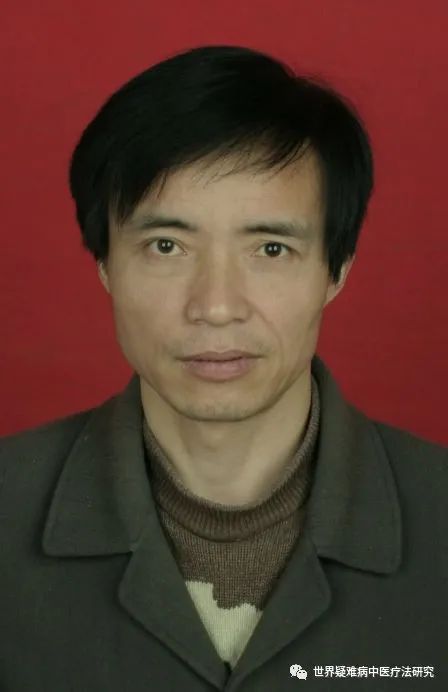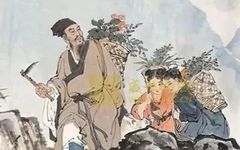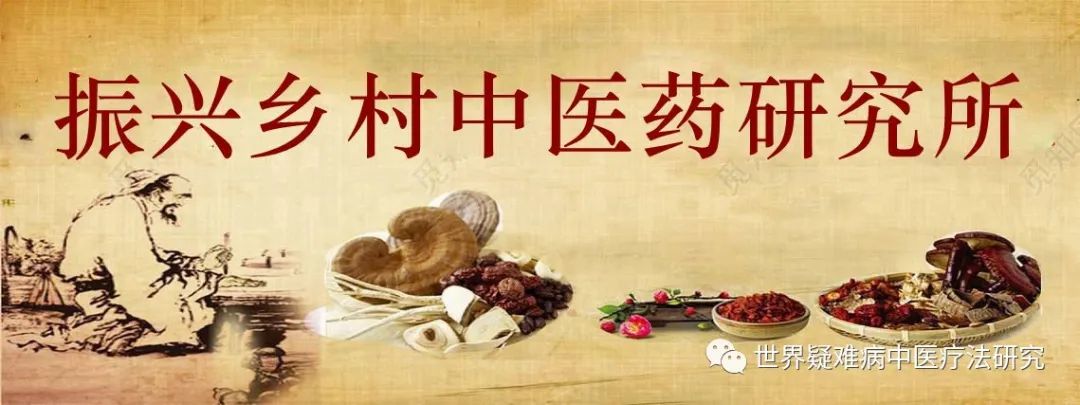
According to the “Huangdi Neijing” (Yellow Emperor’s Inner Canon), “When the righteous qi is preserved within, evil cannot invade; where evil gathers, its qi must be deficient.”
Traditional Chinese Medicine (TCM) emphasizes a holistic view of tumors, considering the balance of righteous and evil qi in the body. The occurrence and development of cancer is a process of righteous deficiency and evil excess. The fundamental cause of tumor development is the deficiency of righteous qi, and most external factors invade the body when righteous qi is weak. Therefore, TCM treatment of tumors emphasizes the principles of “supporting the righteous” and “expelling evil.” This means combining the two approaches, with the treatment principle being “support the righteous without leaving evil, and expel evil without harming the righteous.”
What does “supporting the righteous” mean?
Supporting the righteous means to assist and help restore the patient’s own righteous qi. Righteous qi can be understood as our innate ability to resist disease. “Righteous qi” is innate but requires continuous maintenance and care to remain vigorous. It is comparable to the immune system or disease resistance in modern medicine.
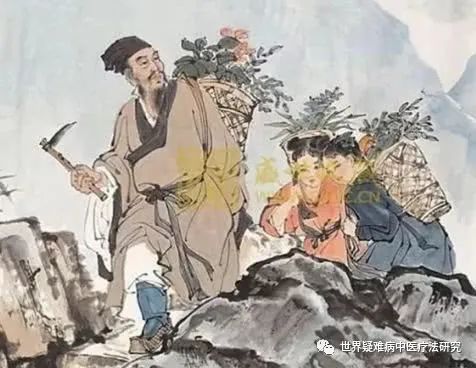
Maximizing the maintenance of one’s righteous qi is a goal we all pursue. Simply put, “supporting the righteous” means to supplement what is lacking. If one is thirsty, provide water; if hungry, provide food. However, if one is thirsty and is given food, or if one is hungry and is given water, it is inappropriate. This seemingly simple principle is not simple in practice, as many people often confuse what should be supplemented and what should not. Some patients, for instance, may have high white blood cell counts and fever, yet still take Huang Qi (Astragalus), Ren Shen (Ginseng), Lu Rong (Deer Antler), and Ling Zhi (Reishi Mushroom) to nourish their qi and blood, resulting in exacerbation of their condition, high costs, and ultimately leading to their demise without understanding why. A great leader once said, “An army without knowledge is a foolish army, and a foolish army cannot defeat the enemy.” Similarly, although patients are not an army, without some medical knowledge or common sense, they cannot overcome the formidable enemy of cancer.
How to support the righteous?
First, it is necessary to differentiate the syndrome. We believe everyone should remember these four terms: qi, blood, yin, and yang. So how should we support the righteous in cases of qi deficiency, blood deficiency, yin deficiency, and yang deficiency? Simply put, it means to tonify qi for qi deficiency, tonify blood for blood deficiency, tonify yin for yin deficiency, and tonify yang for yang deficiency.
Why do some patients see no effect from supporting the righteous?
As we have learned, supporting the righteous requires direction and should not be done indiscriminately. However, many patients with symptoms such as fatigue, pale complexion, heavy head, fever, and low blood counts believe they are qi and blood deficient and take Hong Shen (Red Ginseng), Huang Qi (Astragalus), Shu Di Huang (Rehmannia), Ejiao (Donkey-hide Gelatin), and Da Zao (Jujube) to nourish their qi and blood. The result is often poor, with worsening fatigue and lower blood counts, along with symptoms like loss of appetite, nausea, and chest tightness.

These patients are indeed qi and blood deficient, and the medications are appropriate, but the timing of supplementation is incorrect. We all know that directly applying paint to a wall covered in dust will not adhere well. If the dust is cleaned first, the paint will adhere easily. This is what TCM refers to as “deficiency does not receive supplementation.” When the body is weak, excessive supplementation can lead to further weakness, especially if there is damp-heat or toxic evil within. In such cases, the tongue coating is often yellow, thick, and greasy. The treatment should first clear damp-heat or detoxify, and only then consider tonifying qi or nourishing blood. This is the principle of expelling evil before supporting the righteous. Some patients’ qi and blood deficiency is merely due to damp-heat or toxic evil within, so after clearing damp-heat or detoxifying, the body can gradually return to a state of sufficient qi and blood without needing supplementation, or in other words, “using purging as a form of supplementation,” which reflects the exquisite subtleties of TCM treatment.
What does “expelling evil” mean?
Expelling evil refers to removing pathogenic factors or pathological products from the body to eliminate tumors or prevent their progression. It is important to emphasize that traditional TCM treatment often considers the whole body, focusing on improving overall blood circulation rather than merely local treatment of the tumor.
In TCM, expelling evil often involves using herbs that clear heat and detoxify, as well as invigorate blood and resolve stasis. In contrast, Western medicine primarily uses surgery, chemotherapy, and radiotherapy to expel evil, which requires careful consideration of the degree of treatment. While “urgent treatment addresses the symptoms,” excessive treatment has become a common phenomenon in tumor therapy, with many cases and lessons learned. Some patients experience recurrence or metastasis within a year or slightly longer after surgery, chemotherapy, or radiotherapy, due to the lack of complementary TCM and other methods for maintenance, making subsequent treatment more difficult and sometimes leading to the loss of life. The reason is that they do not understand that tumors are local manifestations of systemic disease; while treating the local area, attention should also be paid to the smooth flow of qi and blood throughout the body. Theoretically, “when qi and blood flow smoothly, no disease arises.” Pathologically, “tumors are accumulations.” When a certain part of the body is diagnosed with cancer, it can be inferred that there may be resistance to the flow of qi and blood at one or more points, and other areas may also have the potential for disease. Additionally, chemotherapy drugs are inherently toxic and can cause significant damage to the body while killing tumor cells. Therefore, we believe that in the early stages of the disease, one should not be blindly optimistic due to the temporary effectiveness of treatment. Surgery, chemotherapy, and radiotherapy may give the impression of immediate results, but these methods, while falling under the category of “expelling evil” in TCM, raise the question of how to prevent recurrence or metastasis after surgery, chemotherapy, or radiotherapy. I believe that comprehensive adjustment should be carried out as soon as possible, following the path of “gentle treatment for fundamental issues.”

How to expel evil?
Specifically for tumors, expelling evil involves clearing heat and detoxifying, invigorating blood and resolving stasis, and softening hardness and dissipating masses. When the body has less heat, it indicates yang deficiency, requiring warming of yang; when there is excess heat, it indicates heat toxin, manifested as redness, swelling, heat, and pain, with yellow urine and dry stools. In such cases, herbs like Huang Lian (Coptis), Zhi Zi (Gardenia), Jin Yin Hua (Honeysuckle), and Lian Qiao (Forsythia) should be used to clear heat and detoxify. Once the heat toxin is eliminated, cancer cells can be controlled. This is akin to a stagnant water bay in summer, where high temperatures lead to a proliferation of flies and mosquitoes; when winter arrives and temperatures drop, the flies and mosquitoes naturally disappear. Tumors accumulating in the body are like large stones blocking a road, which will certainly affect the flow of traffic. Therefore, tumor patients often exhibit symptoms of qi stagnation, blood stasis, and phlegm-damp accumulation. Treatment should focus on moving qi, invigorating blood, and softening hardness and dissipating masses. Using the previous example of the stagnant water bay, if the two ends are opened to connect with a flowing water source, it becomes a stream, and “flowing water does not rot,” thus the flies and mosquitoes will naturally disappear. When qi and blood circulate smoothly, and the blood is rich in oxygen, cancer cells find it difficult to settle in the body.
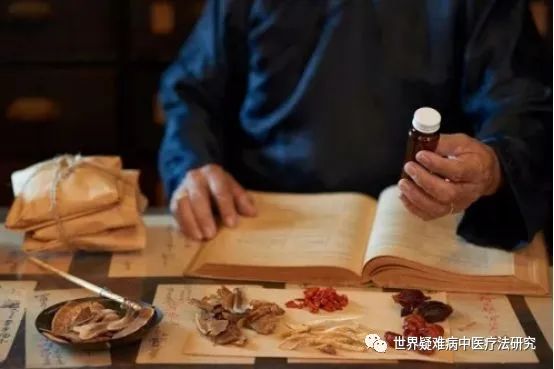
The order of expelling evil and supporting the righteous
From the perspective of symptoms, deficiency of righteous qi is manifested as weak constitution, low immunity, poor disease resistance, and susceptibility to colds; excess evil qi is primarily manifested by the enlargement, infiltration, or metastasis of tumors. The primary goal of expelling evil is to control tumor metastasis and completely eliminate the tumor. We must always support our disease resistance while controlling and eliminating tumors, which is called “supporting the righteous and expelling evil.” Analyzing the terms, supporting the righteous comes first, and expelling evil comes second. This is not merely a matter of word order but illustrates the fundamental principles and framework of TCM treatment. TCM believes that “nourishing the righteous leads to self-elimination of accumulations,” where the accumulations refer to tumors in the body, meaning that by cultivating the body’s righteous qi, the tumors will naturally be eliminated. Of course, there are also cases where expelling evil comes before supporting the righteous; this flexibility is based on the principles and should generally be adjusted according to the patient’s condition and the progression of the disease.
Expelling evil without harming the righteous
Throughout history, classical medical texts have recorded the causes, mechanisms, and treatment methods for tumors, but these discussions are scattered across various medical texts. Based on TCM theory and modern clinical experience in tumor treatment, we summarize that the causes of cancer primarily involve qi, blood, phlegm, toxins, and deficiency, which means disharmony of qi and blood, phlegm-damp not resolving, pathogenic toxins, and organ deficiency. Disharmony of qi and blood refers to qi and blood imbalance, qi stagnation, blood stasis, leading to the formation of lumps. Phlegm-damp is a pathological liquid in the body that, when accumulated, becomes sticky and solidifies into lumps. Pathogenic toxins refer to the close relationship between cancer and the invasion of toxins, where toxic qi combines with qi and blood, phlegm-damp, yin-cold, and epidemic factors, forming heat toxins, damp toxins, stasis toxins, phlegm toxins, yin-cold toxins, and epidemic toxins, which, if not resolved for a long time, can become dangerous accumulations. Organ deficiency is a major internal cause of cancer, as stated, “where evil gathers, its qi must be deficient.” In terms of treatment principles, the ancients had rules such as “cutting what is hard, dispersing what is solid, attacking what remains, and benefiting what is deficient,” thus the main methods of TCM for expelling evil in tumor treatment include invigorating blood and resolving stasis, unblocking channels and collaterals, transforming phlegm and draining dampness, moving qi and promoting urination, softening hardness and dissipating masses, clearing heat and detoxifying, warming yang and resolving stasis, and using toxins to attack toxins.
Invigorating blood and resolving stasis, unblocking channels and collaterals
The ancients believed: “Qi is formless and cannot form lumps; lumps must have blood. Blood that is cold will coagulate into lumps, while blood that is hot will be consumed into lumps.” Clinically, the use of blood-invigorating and stasis-resolving herbs can not only dissolve tumors and dissipate masses but also effectively treat complications of tumors such as fever and pain. The effects of blood-invigorating and stasis-resolving herbs and formulas on tumors include: improving local blood circulation in tumor lesions, alleviating the hypoxic state of cancer cells, effectively killing cancer cells, thereby enhancing the efficacy of tumor treatment; inhibiting platelet aggregation, promoting fibrinolytic activity, making it difficult for cancer cells to remain and aggregate in the blood, improving microcirculation, reducing recurrence and metastasis, and enhancing the efficacy and sensitivity of chemotherapy and radiotherapy, improving blood rheology, eliminating microcirculation obstacles, alleviating hyperviscosity, and regulating immune function.
Clearing heat and detoxifying, anti-cancer and pain relief
Currently, the most commonly used TCM herbs for treating tumors are those that clear heat and detoxify. Pharmacological studies and clinical screenings have proven that most heat-clearing and detoxifying herbs have strong anti-cancer activity, and effective components have been isolated and formulated for clinical use in tumors. Reports indicate that they can effectively block precancerous lesions of esophageal cancer, with varying degrees of symptom improvement and reduced cancer rates; they can alleviate the toxic side effects of radiotherapy and reduce long-term sequelae; and when combined with chemotherapy, they can enhance efficacy and reduce toxicity, treating cancer pain and cancer-related fever. For fever caused by interventional treatment, heat-clearing and detoxifying herbs, along with qi-invigorating and yin-nourishing herbs, are used, showing superior results in terms of fever reduction speed and symptom resolution compared to the control group.
The Fundamental Principle of Treatment—Supporting the Righteous and Expelling Evil
Malignant tumors are a serious threat to people’s health and life. Although malignant tumors are also discussed within the scope of accumulations and masses, fundamentally, they cannot be separated from the aspects of righteous qi and evil qi.
TCM’s understanding of the occurrence of diseases is based on the fundamental theories of “where evil gathers, its qi must be deficient” and “when the righteous qi is preserved within, evil cannot invade.” Our discussion of supporting the righteous and expelling evil is rooted in this fundamental viewpoint. “Supporting the righteous” means assisting the body’s ability to defend against “evil,” allowing the body to achieve normal function, which is referred to as nourishing the root. According to Ming Dynasty physician Li Shicai’s interpretation of the “Neijing,” treatment must seek the root, emphasizing that the innate root is in the kidneys, while the acquired root is in the spleen. This clearly indicates that the specific measures for “supporting the righteous” should be implemented to some extent in nourishing the spleen and kidneys. When the “righteous” is supported and reaches normal function, it can defend against pathogenic evils, thus the function of “expelling evil” can be indirectly achieved through “supporting the righteous,” while directly using medications to combat disease is also a measure of “expelling evil.”
The Innate Root is in the Kidneys, the Acquired Root is in the Spleen.
The kidneys are the “palace of strength, from which skills emerge.” This means that the kidneys can respond physiologically to changes in the internal and external environment. The “Nanjing” (Classic of Difficult Issues) states: “The left kidney is the kidney, the right is the Mingmen (Gate of Life).” This emphasizes the importance of yang qi in the kidneys. Ming Dynasty physician Zhang Jiebin stated: “The Mingmen is the sea of essence and blood, the spleen and stomach are the root of original qi, the residence of water and fire, the yin qi of the five organs cannot be nourished without it, and the yang qi of the five organs cannot be activated without it. The Mingmen has a degree, which is called the original yang, the fire of life.” This indicates that the Mingmen is the key to life; it is where innate qi is stored; it is the source of human biochemistry and the foundation of life. In the broader concept of the kidneys, they also possess extensive functions such as “storing essence,” “governing water,” “receiving qi,” “governing bones,” “producing marrow,” and “opening to the ears and the two yin.” Essence is the fundamental substance that constitutes the human body and is the material basis for various functional activities. Kidney essence transforms into kidney qi, which includes “yuanming” (original brightness), “yuanyang” (original yang), “zhenyin” (true yin), and “zhenyang” (true yang). This indicates that the kidneys play a crucial role in regulating growth, maturation, defense, stress response, balance, and metabolism in the body. Thus, we clarify that the importance of the kidneys is not merely anatomical but functional.
The spleen is the acquired root. The “Neijing” states: “The spleen is the official of granaries, from which the five flavors emerge, capable of transforming dregs and transferring flavors in and out.” It also states: “The spleen and stomach are interconnected, allowing the spleen to transport its fluids.” The spleen, stomach, liver, gallbladder, small intestine, and large intestine are all part of the digestive system. The spleen governs transportation and transformation, governs muscles, and regulates the rise of clear and the descent of turbid. It governs the four limbs and opens to the mouth, with its manifestation in the face. The spleen also has the function of regulating blood. Therefore, the spleen is responsible for the transportation of the essence of food and water, as well as the regulation of blood, ensuring its normal circulation in the meridians and preventing overflow. It governs the four limbs and nourishes muscle activity; the spleen and stomach are mutually supportive and are the source of the generation of qi and blood. Thus, it is considered the acquired root. This illustrates the spleen’s crucial role in coordinating activities throughout the body, especially in the digestion, absorption, synthesis, and metabolism of food. It also significantly influences the fullness and deficiency of qi and blood, the strength and weakness of the muscles and limbs, and the moisture and dryness of the complexion and lips.
From the exploration above, it is evident that TCM’s view of the spleen and kidneys as the foundation of the body is well-founded. Therefore, Professor He Ren emphasizes that the principle of supporting the righteous and expelling evil should focus on nourishing the spleen and kidneys. Of course, this includes the support and nourishment of qi, blood, yin, and yang. When applying the methods of supporting the righteous, attention should first be given to the spleen and stomach, because if this acquired source of transformation cannot function well, then any supplementation will not achieve the desired effect. Therefore, the principle of supporting the righteous should prioritize the spleen and stomach. If the spleen and kidneys are not weakened, then the foundation for disease resistance and expelling evil is established. Professor He Ren advocates for the prevention and treatment of tumors, adjusting the focus to either nourishing the spleen or the kidneys, or both, depending on the different conditions. While supporting the righteous, anti-cancer medications should also be used. Combining supportive tonics with anti-cancer medications appears to be more beneficial and has fewer side effects than using anti-cancer medications alone.
The Twelve Character Key to Applying the Method of Supporting the Righteous and Expelling Evil
Professor He Ren believes that the treatment of malignant tumors should adopt a comprehensive approach that combines traditional Chinese and Western medicine, such as surgery, radiotherapy, and chemotherapy, along with TCM, to complement each other for better treatment outcomes. In terms of TCM treatment, Professor He Ren emphasizes that the method of supporting the righteous and expelling evil must adhere to the twelve-character principle: “Continuously support the righteous, timely attack evil, and treat according to the symptoms.”
“Continuously support the righteous” means that treatment should consistently focus on adjusting righteous qi, nourishing the root, and enhancing the patient’s disease resistance throughout the process. The medication regimen may vary slightly depending on different stages.
“Timely attack evil” means using anti-cancer herbs at appropriate times. For example, during chemotherapy or radiotherapy, when other doctors are focusing on attacking evil, TCM may not necessarily need to use anti-cancer herbs. If chemotherapy has concluded or is in a recovery phase, more anti-cancer herbs can be used appropriately.
“Treat according to the symptoms” means that during the treatment of cancer, due to the varying severity of symptoms, duration of illness, age, gender, diet, and environment, the symptoms can be diverse and different. Adjustments to medications should be made according to symptoms, such as using medications for fever, pain, or bleeding. For mild accompanying symptoms, such as poor appetite or vomiting after chemotherapy, medications should be targeted to those symptoms. Common adjustments include clearing, resolving, harmonizing, draining, guiding, opening the appetite, regulating, relieving heat, relieving pain, reducing swelling, and promoting urination.
Considerations for Applying the Method of Supporting the Righteous and Expelling Evil
There are many methods in TCM for treating tumors, and various academic perspectives on medication should be carefully selected. Using purely supportive tonics to treat tumors may indeed enhance the body’s immune function, which could help reduce tumor metastasis and recurrence, but there are currently few examples of this.
Secondly, methods that primarily attack evil are generally worth promoting and have been proven effective in numerous cases. If the evil is clearly present and righteous qi is not weakened, it is advisable to urgently attack and resolve the accumulation, and the dosage can be appropriately increased. If the tumor has generally improved after surgery, radiotherapy, or chemotherapy, and the pathogenic evil is trending towards relief, but there is still significant damage to qi and yin, then the dosage of anti-evil medications should be gradually reduced while gradually incorporating some supportive and nourishing herbs.
Thirdly, the simultaneous use of supportive and anti-evil methods can be beneficial if the cases are selected appropriately. In facing the contradiction between evil and righteous, one must achieve “expelling evil without harming the righteous, and supporting the righteous to assist in expelling evil.” As for which should be prioritized, there is a distinction between the two, but they cannot be completely separated. The condition of the body varies greatly, and the balance of evil and righteous forces also differs, so it cannot be generalized which should be prioritized. Generally, in the early to mid-stages, when physical strength is not weakened and qi and blood are not damaged, one can focus more on attacking evil. In late stages, when qi and blood are depleted, one should primarily support the righteous, but one should not neglect the expulsion of evil. Tumors are complex diseases with convoluted courses, and finding a precise, stable, and efficient treatment method requires careful consideration and exploration. The approach of “burning both jade and stone” is not advisable. It is essential to avoid harming the righteous while not assisting the evil, and exploring appropriate methods for simultaneous support and expulsion may open new avenues. This is based on the principle of “no deficiency in deficiency, no excess in excess.” It is undesirable for the tumor to remain unchanged while the patient is in a state of decline, which is something both doctors and patients wish to avoid. Therefore, medications should be administered according to the symptoms, and if strong measures are needed, they should be maintained as long as the patient can tolerate them and show efficacy. If significant side effects occur after medication, adjustments should be made. The approach of “brutally attacking with the belief that it can work” is inappropriate. The simultaneous application of supporting the righteous and expelling evil can reduce or avoid these shortcomings. In the current context in China, when a clear diagnosis of a tumor is made and surgery is appropriate, it is advisable to proceed with surgery as early and effectively as possible. After surgical resection, combining with TCM treatment is more appropriate. For patients who fear surgery or do not meet surgical indications, caution should be exercised, with close monitoring and decisive management, never to be taken lightly.
Another aspect of supporting the righteous and expelling evil is that diet should be appropriate. Purposefully consuming foods that have the effect of supporting the righteous and expelling evil is also beneficial for rehabilitation. Professor He Ren once encountered a patient with multiple rectal polyps, confirmed by X-ray, but who did not meet surgical indications. He advised the patient to consume 50-100 grams of Job’s tears daily as a substitute for breakfast, without taking other medications. After half a year, follow-up X-rays showed that the rectal polyps were no longer significant. Even for cancer patients, daily consumption of Job’s tears and Fu Ling (Poria) is beneficial and harmless for preventing recurrence, and the pharmacological effects and mechanisms should be further explored.
Commonly Used Formulas and Herbs for Supporting the Righteous and Expelling Evil in Malignant Tumors
Professor He Ren not only masters the properties and effects of traditional Chinese herbs but also frequently incorporates new knowledge from modern medical research on herbs. He often introduces to us:
-
Four Gentlemen Decoction, Red Dates, Huang Hua (Day Lily), and Yi Yi Ren (Job’s Tears) for tonifying the spleen and benefiting qi;
-
Dang Gui (Angelica), Ji Xue Teng (Spatholobus), Dan Shen (Salvia), Tian Dong (Asparagus), Mai Dong (Ophiopogon), and Sha Shen (Glehnia) for nourishing blood and yin;
-
Di Huang (Rehmannia), Du Zhong (Eucommia), Chuan Xiong (Ligusticum), and Liu Wei Di Huang Wan (Six Flavor Rehmannia Pill) for tonifying the kidneys, selected based on the condition;
-
Anti-cancer and evil-expelling herbs like Cat’s Claw, commonly used for treating leprosy and tumors.
-
Job’s Tears, which has been shown to have inhibitory effects on tumors and is effective for flat warts, also has the effect of strengthening the spleen and draining dampness. Cooking 30 grams daily as a substitute for breakfast has shown ideal results.
-
White Flower Snake Tongue Grass, which has been shown to have inhibitory effects on tumors and leukemia and can promote antibody formation and increase the phagocytic ability of white blood cells.
-
Ban Zhi Lian (Scutellaria) has been shown to have inhibitory effects on tumors, with a few cases reporting slightly increased bowel movements as a side effect.
-
Some supportive herbs also have anti-cancer effects, such as Bai Zhu (Atractylodes), which has been shown to inhibit certain tumors and promote immunity.
-
Gan Cao (Licorice) has been shown to have inhibitory effects on experimental animal models of myeloma.
-
Fu Ling (Poria) and Zhu Ling (Polyporus) also have tumor-inhibiting and antibody-enhancing functions.
Prevention of Malignant Tumors and Other Considerations
1. Prevention of cancer
The prevention of cancer is a topic of great concern. The main prevention methods are etiological prevention and pathogenesis prevention. According to relevant data, the use of drugs for cancer prevention is referred to as tumor chemoprevention, which is currently a realistic and feasible method. Recent TCM publications have reported effective blocking treatment for precancerous lesions of esophageal cancer using anti-cancer tablets. After a period of medication, there was a good blocking effect on the severe hyperplasia of the esophageal epithelium. They conducted thousands of experimental samples, indicating that drug blocking treatment for precancerous lesions of esophageal cancer is a feasible and effective preventive approach.
2. The issue of extracting anti-cancer drugs from Chinese herbs
Screening for anti-cancer drugs from Chinese herbs has been ongoing for many years, with some extracting their main components to create new chemotherapy drugs. This approach, which does not adhere to TCM theory and departs from traditional TCM principles, is also worth exploring.
3. The application of Chinese herbs guided by TCM theory
In clinical treatment of cancer, the application of TCM has been in practice for many years, but the differentiation and treatment of cancer in TCM essentially involves righteous, evil, deficiency, and excess, which can further be divided into qi, blood, yin, and yang. This differentiation is generally feasible. It is not advisable to classify too finely, but rather to treat according to symptoms. Some advocate that all cancers should use methods to soften hardness and dissipate masses, as tumors generally have lumps. This is indeed a commonality among various cancers and is the basis for using methods like softening hardness and dissipating masses in clinical practice. However, each cancer also has its individuality, and some cancers may not be suitable for methods that soften hardness and dissipate masses, which should not be overlooked.
